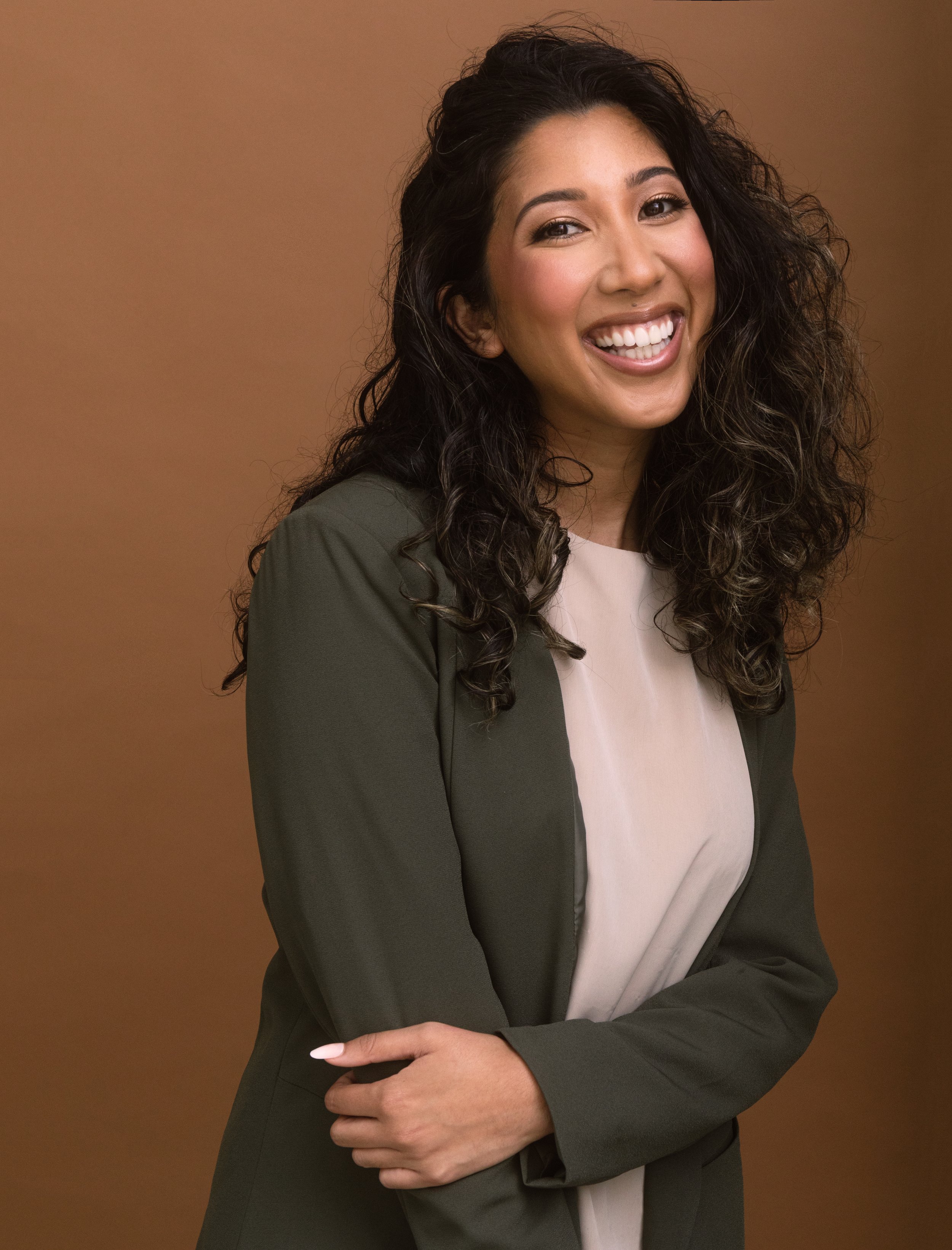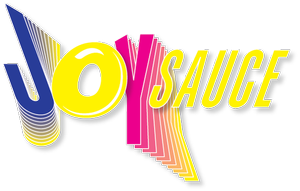Kristy Drutman Navigates the Liminal Spaces of Climate Solutions
Mixed Asian Media - October 3, 2023
By Ryan Cotter
Powered by JoySauce
As an environmentalism student in university, Kristy Drutman was well aware of the increasingly catastrophic consequences of climate change. And when those consequences literally hit close to home, she had her climate justice wake-up call.
In 2013, Typhoon Haiyan hit the Philippines, impacting her numerous family members who live there. Imagining how her loved ones would continue to be impacted as the typhoons increase in frequency and severity due to climate change, she knew she had to act.
Flash forward to today, she is a green lifestyle influencer known as “Browngirl Green” and interviews a diverse range of environmental leaders and experts on her eponymous podcast. She also co-founded Green Jobs Board with one of her childhood best friends. I sat down with Kristy to discuss her green content creator journey, the value mixed perspectives bring to environmental justice, and what you can do to help advance environmental justice.
This interview has been edited for clarity and length.
Interview
What inspired you to start the Browngirl Green Podcast and become an environmentalist influencer?
It was about six years ago. It was my last semester of university and I realized I wanted to start my own media platform because I felt like I didn't see many people creating content talking about climate change or environmental issues in a way that felt compelling to actually reach people, especially people of color. I decided to take matters into my own hands, so I launched Browngirl Green. It started off as a podcast and then kind of merged into blogs and videos and all sorts of content until I had a regular cadence as a content creator and made it my full-time job.
Have you done podcasting or content creation before? What was that learning curve like?
No, I was completely self-taught. I didn't really have any resources. I didn't have any connections to any podcast production companies or anything like that. It was just me figuring it out and having to really take the initiative to build it out myself. It was a difficult learning curve, especially because I didn't have a co-host or a team back then. Luckily over time, I had people join me on that journey and really helped me out because they believed in my vision.
I always say I couldn't have done it by myself, nor did I do it by myself. There were a lot of people over the years who just gave little bits of their time to support me in creating what I have today.
What inspired you to create Green Jobs Board?
Green Jobs Board emerged through my influencer platform, basically summer 2021. I decided I was gonna start sharing resources online about green jobs. I started posting on social media opportunities I was finding, and literally had no expectations of where it was going to go. And basically it just kind of blew up to where people were just going crazy over it. People were like, “What if you made this a bigger resource that you could put out into the world?” It went from it being on my personal Instagram, to us launching a separate Instagram for it. Then that separate Instagram was also getting a ton of engagement, and then organizations [wanted] to post with us. Eventually we were like, “Should we just become a company?” And so about seven months ago, we became one.
As a self-proclaimed “Jew-Pina,” what has your experience been in the environmentalist influencer space? How do you apply your perspective to your environmentalist work?
I would say being mixed race allowed me the opportunity to be a better storyteller. I'm always thinking, where are the limitations on my own filter of reality? Being mixed race always challenges me on that, because we're kind of societal anomalies and we're told, “You're supposed to be like this,” or, “It's supposed to work this way.” We have this whole generation of young mixed-race kids taking pride in that, instead of feeling [like they’re not enough].”
The funny thing is with environmentalism, there's a big part of that [similar feeling]. In general, people who aren't in this space feel this guilt. They're like, “I'm not doing enough this, I'm not doing enough that.” When it comes to these things, I see so many parallels between that and my own identity.How can we learn that there are gray areas, and how can we learn that there is beauty in the imperfection of it all? Being mixed race taught me how to do that at an early age — how to navigate the liminal space in between spaces. Being able to come up with climate solutions and address these big systemic issues requires you to have that skill set: being strategic and creative, learning how to do things with very limited resources, and learning how different actors or sectors that usually don't interact could blend together. [This work] requires a lot of tinkering that does not involve the current status quo system we live in today.
What is your perspective on the current climate change response, and what is the biggest obstacle in reaching the goals you mentioned?
Things are just not moving fast enough. There was talk of doing [X] by 2020, and now it's changed to 2030. Now that we're almost to 2030, people are pushing it to 2050. We don't have time to keep pushing back how we're going to address this! I get very concerned about the lack of urgency from our policymakers.
It's also very frustrating that there are still so many companies and politicians bought out by extractive industries. Until those people are held accountable, and until that power and those resources are redistributed in a meaningful way, industries aren't going to be able to move the needle at the scale they need to. We're at an interesting time, and there's a lot of opportunity on a local level. People could be taking action for sure, but I think there needs to be more action [from policy makers]. Unfortunately, we can't trust the government to do it. We have to be strategic, and take some things into our own hands.
Ultimately, people with power and privilege want to maintain the status quo, and are willing to leave the earth wrecked while the rest of us deal with it. More people need to recognize that that's not right and take action.
Often the most “doomscroll-y” content tends to be from those who are really highlighting the climate crisis at its worst. When creating content, how do you balance sounding the alarm while not feeding into doomscrolling?
I think it's about utilizing social media mindfully and being able to connect the dots. I think it is really important to be able to ground yourself and know that you're using these platforms in a way that's not going to further destroy your mental health. I know that people usually use it to connect with friends. But if you're someone that wants to use it for action, I think using it in a way where you're viewing it more like a directory where you're saving posts or you're learning the ecosystem of a social issue, and who are the thought leaders in it and what is the current discourse happening around that issue. I think if you use social media in that way and of course, limit it so your mental health doesn't get destroyed, I think you can have a much more positive relationship with it, where you feel empowered with more tools to use for good.
What would your advice be to people who are nervous about climate change and want to get involved in environmental work, but don’t know where to start?
It's important to start asking questions about your workplace, or the way you live your day-to-day life. Take an audit [on] the ways things could be done more sustainably or in harmony with the environment.
But it can't just be up to the environmentalists. We need everybody to challenge their own sector to talk about these things, or at least consider it, whether it be small things like thinking about paper use, or convincing your coworkers to go on a beach cleanup. No matter where you're at, you can start those dinner table conversations about climate change — that can make a difference for sure.
End of Interview
You can check out Green Jobs Board’s new website, listen to the Browngirl Green Podcast wherever you get your podcasts, and follow “Browngirl Green” on all your socials (and even YouTube!).
Ryan is a student currently based in Washington (the state, not D.C.). She grew up as a third-culture kid in Hong Kong, Australia, and Singapore, and most recently has studied abroad in Denmark! She is a woman of many hats both literally and figuratively, as you can see her stage managing theatre productions, writing with her sketch comedy group, creating podcasts, and performing with her Asian diaspora dance group X-ertion among other places! She has also been a guest contributor for the Wall Street Journal. She is a passionate advocate for radical joy. You can spot her 3 miles away in her brightly colored outfits FaceTiming her mom, hanging with friends, or attending the latest play or drag show.
JoySauce is a multimedia network dedicated to celebrating the full spectrum of Asian American and Pacific Islander narratives. The site boasts a vibrant library of content around entertainment, lifestyle, food, travel, culture, relationships, art, and education in the form of exciting new streaming shows, movies, standup comedy, provocative podcasts, and a suite of editorial updated daily.




